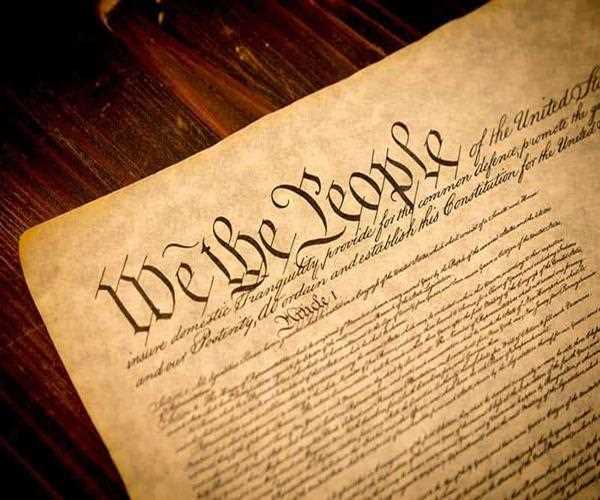*Bill of Rights*

The initial 10 alterations to the Constitution make up the Bill of Rights. James Madison composed the alterations, which list particular denials on legislative power, in light of calls from a few states for more prominent established insurance for singular freedoms. For instance, the Founders saw the capacity to talk and love openly as a character right ensured by the First Amendment. Congress is disallowed from making laws setting up religion or shortening the right to speak freely. The Fourth Amendment defends residents' entitlement to be free from nonsensical government interruption in their homes through the necessity of a warrant.
The Bill of Rights was unequivocally impacted by the Virginia Declaration of Rights, composed by George Mason. Different forerunners incorporate English archives, for example, the Magna Carta, the Petition of Right, the English Bill of Rights, and the Massachusetts Body of Liberties.
One of the numerous purposes of conflict between Federalists, who upheld a solid national government, and Anti-Federalists, who needed the energy to stay with state and neighborhood governments, was the Constitution's absence of a bill of rights that would put particular breaking points on government control. Federalists contended that the Constitution did not require a bill of rights, on the grounds that the general population and the states kept any forces not given to the central government. Against Federalists held that a bill of rights was important to protect singular freedom.
Madison, at that point an individual from the U.S. Place of Representatives, modified the Constitution's content where he thought fit. Nonetheless, a few agents drove by Roger Sherman, protested, saying that Congress had no specialist to Amendment the wording of the Constitution. Along these lines, Madison's progressions were displayed as a rundown of alterations that would take after Article VII.
The House endorsed 17 alterations. Of these, the Senate affirmed 12, which were sent to the states for endorsement in August 1789. Ten Amendments were endorsed (or approved). Virginia's lawmaking body was the last state assembly to sanction the alterations, favoring them on December 15, 1791.
THE BILL OF RIGHTS
Amendment I
Congress might make no law regarding a foundation of religion, or restrict the free exercise thereof, or abbreviate the right to speak freely, or of the press; or the privilege of the general population quietly to gather and to appeal to the administration for a review of grievances.
Amendment II
An all around managed volunteer army, is important to the security of a free express, the privilege of the general population to keep and carry weapons, should not be encroached.
Amendment III
No trooper might, in time of peace be quartered in any house, without the assent of the proprietor, nor in time of war, however in a way to be endorsed by law.
Amendment IV
The privilege of the general population to be secure in their people, houses, papers, and impacts, against absurd inquiries and seizures, should not be damaged, and no warrants might issue, but rather upon reasonable justification, upheld by vow or assertion, and especially depicting the place to be looked, and the people or things to be seized.
Amendment V
No individual might be held to respond in due order regarding a capital, or generally scandalous wrongdoing, unless on a presentment or arraignment of a fantastic jury, aside from in cases emerging in the land or maritime powers, or in the state army, when in genuine administration in time of war or open risk; nor should any individual be subject for a similar offense to be twice placed in danger of life or appendage; nor might be constrained in any criminal body of evidence to be an observer against himself, nor be denied of life, freedom, or property, without due procedure of law; nor might private property be taken for open use, without just pay.
Amendment VI
In each and every criminal arraignment, the charged may value the benefit to a fast and open trial, by a fair-minded jury of the state and zone wherein the bad behavior ought to have been carried out, which region might have been beforehand found out by law, and to be educated of the nature and reason for the allegation; to be faced with the observers against him; to have necessary process for acquiring witnesses to support him, and to have the help of advice for his safeguard.
Amendment VII
In suits at custom-based law, where the incentive in a debate might surpass twenty dollars, the privilege of trial by jury should be protected, and no reality attempted by a jury, should be generally rethought in any court of the United States, then as indicated by the tenets of the customary law.
Amendment VIII
Exorbitant safeguard should not be required, nor intemperate fines forced, nor unfeeling and unordinary disciplines exacted.
Amendment IX
The specification in the Constitution, of specific rights, should not be translated to deny or stigmatize others held by the general population.
Amendment X
The forces not designated to the United States by the Constitution, nor disallowed by it to the states, are held to the states individually, or to the general population.
Cheers!